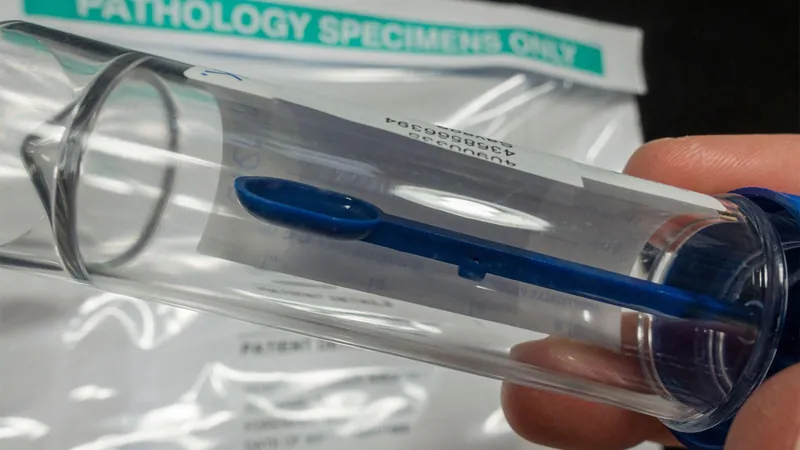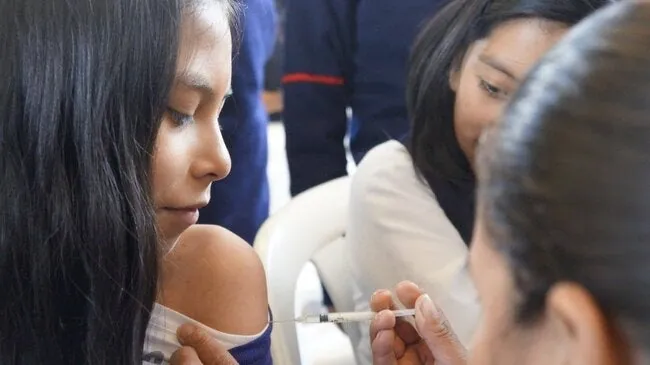
Surprising Findings: H. Pylori Testing Fails to Lower Gastric Cancer Rates
2024-09-30
Author: Nur
Introduction
In a groundbreaking study conducted in Taiwan, researchers have revealed that screening for Helicobacter pylori (H. pylori) through stool antigen testing does not significantly lower the incidence or mortality rates of gastric cancer. These findings have raised eyebrows in the medical community, as H. pylori is known to be a major contributor to the development of this cancer.
Study Overview
The randomized trial, which involved participants aged 50 to 69, compared those invited to undergo H. pylori testing alongside a fecal immunochemical test (FIT) for colorectal cancer with a control group that only completed the FIT. Surprisingly, the incidence of gastric cancer was slightly lower in the H. pylori group (0.032%) compared to the FIT-only group (0.037%), but this difference was not statistically significant (P=0.23). Similarly, mortality rates were nearly identical between the groups (0.015% vs. 0.013%, P=0.57), signifying that the impact of H. pylori screening may not be as beneficial as once hypothesized.
Post Hoc Analyses
While initial results appeared unimpressive, post hoc analyses painted a more nuanced picture. After accounting for differences in participation, follow-up duration, and patient characteristics, a statistically significant reduction in gastric cancer incidence was observed in the H. pylori group (Relative Risk [RR] 0.79, 95% Confidence Interval [CI] 0.63-0.98, P=0.04). However, this did not translate to a significant decline in mortality rates (RR 1.02, 95% CI 0.73-1.40, P=0.91).
Expert Insights
The potential for H. pylori eradication as a preventive measure against gastric cancer is still a hot topic among researchers. Dr. Tony Hsiu-Hsi Chen from National Taiwan University and his colleagues noted that, while the community screening hypothesis remains unproven, the collaboration between H. pylori testing and FIT presents an avenue for future investigation.
An editorial from Dr. M. Constanza Camargo from the National Cancer Institute offered further insights. She highlighted that although the H. pylori testing did present promising results in adjusted analyses (showing reduction of both incidence and mortality), the study faced challenges such as varying adherence rates to interventions and different follow-up times, which could skew results.
Study Details
This study involved over 63,000 adults in Changhua County, Taiwan, conducted over four years, from January 2014 to September 2018. About 38.5% of those screened for H. pylori tested positive, with a staggering 98.4% completing treatment following diagnosis. Post-treatment H. pylori eradication rates climbed to impressively high levels of 91.9%.
Despite some participants reporting mild side effects like abdominal pain and diarrhea, the overall adherence and completion rates raise questions about the practicality of widely deploying H. pylori screening combined with colorectal cancer testing within health systems.
Conclusion and Future Implications
As research continues, experts are left pondering: Could the contentious relationship between H. pylori screening and gastric cancer prevention lead to new discoveries in cancer treatment modalities? The implications of these findings could reshape the approach to gastric cancer screening strategies, and possibly herald a future where the battle against this formidable disease is approached with a renewed lens. Stay tuned as we uncover more about the ongoing investigation into H. pylori and its implications for public health!




 Brasil (PT)
Brasil (PT)
 Canada (EN)
Canada (EN)
 Chile (ES)
Chile (ES)
 España (ES)
España (ES)
 France (FR)
France (FR)
 Hong Kong (EN)
Hong Kong (EN)
 Italia (IT)
Italia (IT)
 日本 (JA)
日本 (JA)
 Magyarország (HU)
Magyarország (HU)
 Norge (NO)
Norge (NO)
 Polska (PL)
Polska (PL)
 Schweiz (DE)
Schweiz (DE)
 Singapore (EN)
Singapore (EN)
 Sverige (SV)
Sverige (SV)
 Suomi (FI)
Suomi (FI)
 Türkiye (TR)
Türkiye (TR)